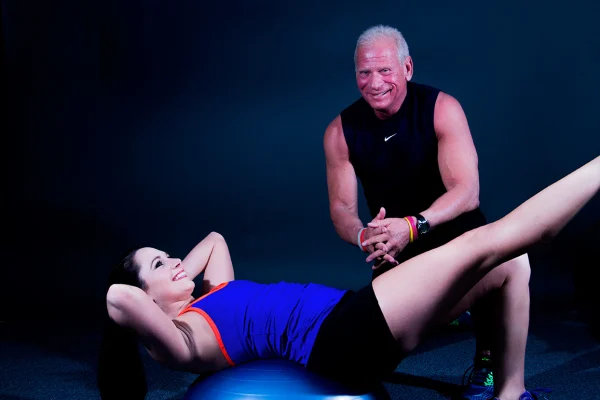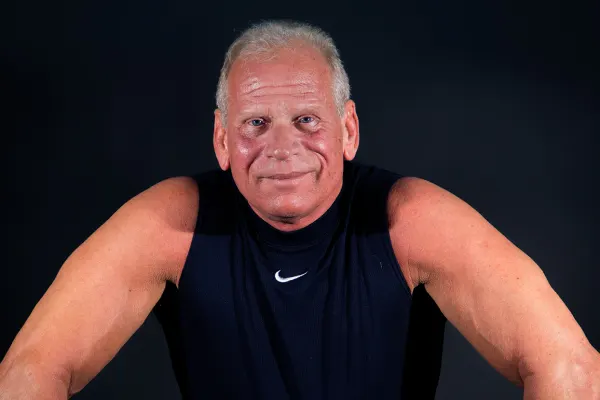Recovery Training
About
Recovery Training focuses on the recovery challenges that people (primarily, seniors) face, limiting their ability to train independently and negatively affecting their daily lives. These challenges might be due to age, injury (with or without surgery), chronic condition, disease, or physical deconditioning. Recovery Training completes the recovery process initiated by the physician and continued in physical therapy.
The recovery process is truly remarkable and astounding. Every day I wake up, I have the opportunity to promote or complete that process, making a significant difference in someone's recovery.
Photos and videos


Reviews
C. M.
Frequently asked questions
What is your typical process for working with a new student?
The process begins with a thorough assessment, and the development of goals based on the results are established.
What education and/or training do you have that relates to your work?
I currently have six certifications from National Academy of Sports Medicine:
Corrective Exercise Specialist, Performance Enhancement Speialist, Senior Fitness Specialist, Women's Fitness Specialist, Fitness Nutrition Specialist, Certified Personal Trainer.
Do you have a standard pricing system for your lessons? If so, please share the details here.
$75 per session, with number of sessions completed billed at the end of the month. The price per session decreases if the student wishes to pay for the monthly sessions in advance. My services are task deductible, and are covered by Flex Spending and Health Reimbursement Accounts. My advice is to check with your health insurance carrier, because there is a possibility they will totally or partially pay for the sessions, if your physician states that there is a need.
How did you get started teaching?
While working as a teaching tennis professional and I became more interested in the conditioning competitive tennis players than teaching. I began preparing them for the rigors of the tennis circuit and increasing their physical fitness level. As time went on I became adept at rehabbing the injuries of my clients and the injuries I suffered from the toll of years of playing tournament and club tennis. I soon caught the attention of several orthopedics and they encouraged me to pursue a career as certified personal trainer. I became fascinated with the recovery process and took the physicians advice, certifying through the National Academy of Sports Medicine.
What types of students have you worked with?
I deal with the recovery challenges that people have, limiting their ability to train independently and negatively affecting their daily lives. These challenges might be the result of age, injury (with or without surgery), disease, chronic condition, or physical deconditioning. Basically, I complete the recovery process that was initiated by the physician, and continued in physicial therapy. On many occasions, my clients are referred to me after consultation with their physician, bypassing physical therapy.
Describe a recent event you are fond of.
My fondest memory of all was working with a mildly autistic, 10-year-old boy, developing his motor skills. While working with Jack, I wanted to add jumping rope to his program to improve his coordination and conditioning. He struggled with it and often became frustrated. I knew he loved dogs, especially Labrador Retrievers, so I decided to bring my Black Lab, Abby for one of our sessions. Abby sensed that the boy had challenges, bonding with him immediately, offering her love and support. Trying to please my dog, the boy went from struggling to complete one set of 20 total jumps to running off sets of as many reps as I prescribed. The boost to his self-confidence was phenomenal. The boy attacked and conquered challenges inside and outside the gym, and always knowing that the Abby and I were enormously proud of him.
What advice would you give a student looking to hire a teacher in your area of expertise?
-
1. 85% of the any gym population has no clue how to design a recovery/fitness program that will satisfy their goals. Of the remaining 15%, 12% have varying degrees of understanding of the many principles involved in a successful recovery/fitness program, leaving only 3% that have a clear understanding. Mark Twain once said, “What gets us into trouble, is not what we don’t know. It is what we know for sure the that just ain'’t so.” People frequently join gyms and confident they know how to achieve their goals and proceed to do more damage than good. It is far easier to overtrain than to under train. The solution is a progressive, systematic approach that is designed for goal achievement and injury prevention.
-
2. Suit up and show up. You cannot expect productive results with sporadic attendance with or without working with a trainer. Show up even when you are not at your best physically. If you are sick, stay at home, but any athlete knows that they will not always be feeling their best and they will give the best they have. Athletes, also, know that some of their best performances have been when they did not feel like getting out of bed.
-
3. Train your body not your ego. Far too many people hit the gym as if they were on stage, viewed by the whole world. It is far more important to do the mentally challenging preparation workouts that build a strong foundation for future workouts.
What questions should students think through before talking to teachers about their needs?
1. Personal training is not for everybody. It is up to the student to decide if they have the time, committment, and financial resources.
2. I provide my services at InBalance Fitness in Cooper/Young area of Memphis. InBalance Fitness is a closed facility that does not have memberships. Personal training only. Because of that we are able to offer a very cleaner and safer environment than other gyms in Memphis.